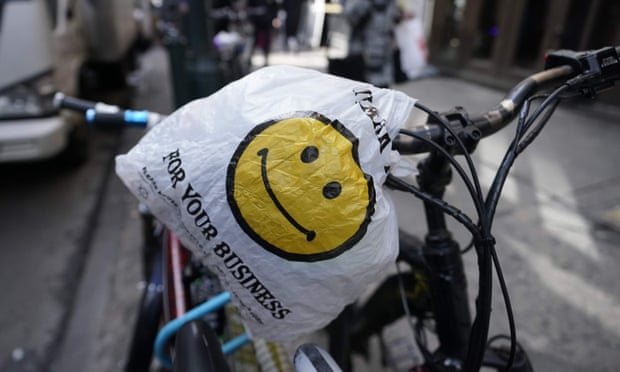With effect from 1st March 2020, the use of Plastic bags was announced to be banned but now the lawsuit has extended the commencement date to 1st April 2020, in New York. The ban was considered by the state’s Department of Environmental conservation, after acceptance of plea from the opposition. The decision was taken at the last moment to the shown clause of the low-income group and plastic bags’ shortages.
The ban on single-use plastic for the retailer shop has been implied in several countries; New York has stepped into the global environmental movement.
History of single-use plastic
The single-use of plastic bags’ came to the US in 1979, though its origin is older dating back to 1933, in Norwich England. The aim of the one-time use of plastic bag was for the cover of the packaging products. Earlier plastic bag were known as T-shirt plastic bag. Celloplast is one of the oldest companies that still works on polyethylene products.
The Celloplast is a Swedish company that was behind the thought and invention of the onetime use plastics. After the introduction of the plastic, it was later observed that the costs of plastic bags’ were less than the paper bag, the difference of the costing was of 5$ to 6$ per 1000 bags of this different material.
While due to the cost preference the retailers, supermarkets started using plastic bags. After a decade, the demand for plastic bag increased to 75%, and studies say that Americans use about 100 billion plastic bags.
The use of plastic bag was not an issue until it started creating atmospheric pollution. Decomposition of the plastic bag slowly turned to a major problem not only in New York or America but it turned out to become a global environmental problem.
Damages due to plastic use to the environment
Could you imagine that plastic pollution would affect 267 species of the ocean? Yes, the poisonous decomposition of the plastic on the land has disturbed the aquatic ecosystem. About 80 percent of the pollution is due to the decomposed plastic in the land.
The disastrous situation has arisen when the sea animals are not safe. The sea turtles are found with plastic bags inside their stomach and the weaker species about 100,000 marine animals are dead due to the water pollution.
Plastic bags do not decompose easily; it requires about 500 years of decomposing inland soil. Unlike biodegradable products, the decomposition of plastic is not beneficial to the environment. As plastic bag decompose, it absorbs toxins and leads to land pollution. So, it is ultimately of no use!
The pollution of land and water are occurring simultaneously. To reduce the atmospheric pollution it has become important to stop the use of one-time plastic bag.
Preparation of Stores
With the order of banning plastic bags in the market, it became necessary for the shop owners to find a replacement. Shopkeepers have got an extended period for the setting and sorting the issue of plastic bags. The time of banning plastic bags is now extended to one month from now.
Businesses like medicines, dry cleaning and uncooked meat can use single-use plastic bag. The shopkeepers are under pressure and anxiety as it is already known that the price of paper bags is higher than plastic bags with shortages of paper bag. Jim Calvin, the President of the New York Association of Convenience Stores, has shared the main issues that are going to arise after the banning of plastic.
The main cause is to find an alternative to the plastic bag, until then paper bags and reusable bags are the options for the replacements. It will not be as cheap as single-use plastic bag, but as looking, in the long run, it will cause a useful difference to the environment.
It may be difficult to step in at the first round. As moving forward with the banning of plastic the market will be able to cope up with the difficult situations after some time with an effective solution of single-use plastic bag.







































